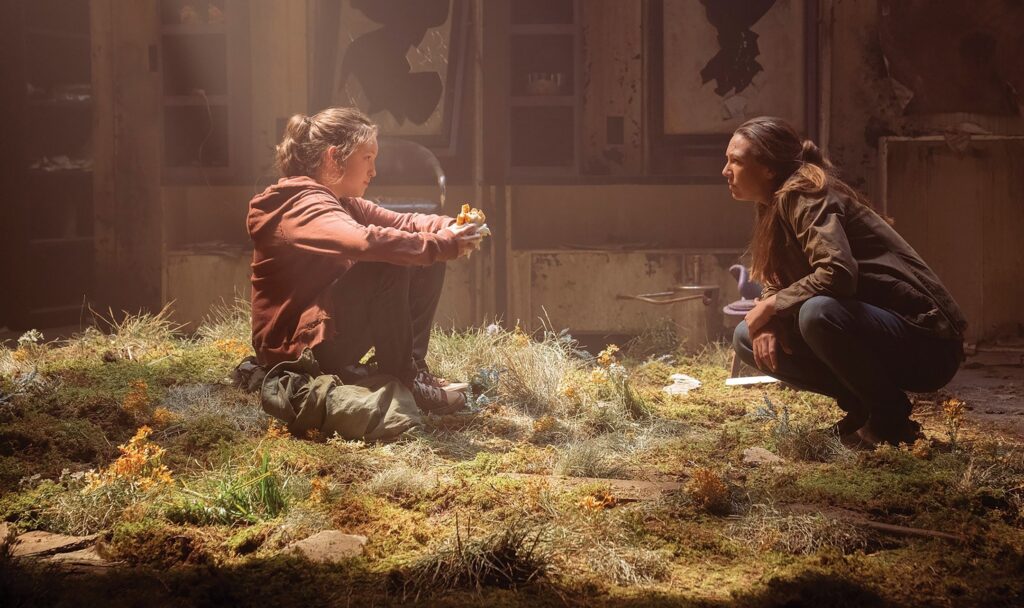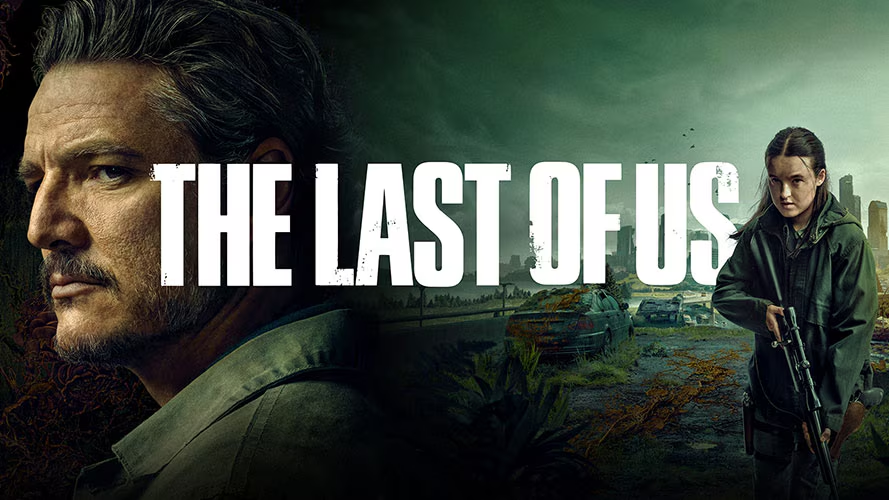When the second season of The Last of Us premiered earlier this year, I was eager to see how the story would unfold. Spearheaded by creative directors Craig Mazin and Neil Druckmann, the first season established itself as a rare success in the realm of video game adaptations (I’m looking at you, Assassin’s Creed and Warcraft).
Season 1 was praised for how it managed to successfully balance a strong faithfulness to the source material whilst simultaneously incorporating original ideas. The post-apocalyptic drama, which is based on a two-part video game series developed by Naughty Dog, grapples with complex themes of grief and trauma. Backed up by visually stunning cinematography and a masterful soundtrack, the first season captivated audiences, with the final episode alone drawing in over 8 million viewers.

Yet when the credits began rolling on the season 2 finale, I found myself wondering where that magic had gone. There were several glaring issues with the writing and pacing that a few standout moments could not redeem.
To critically assess the weaknesses of season two, it is first necessary to understand the central story being explored in The Last of Us. A mutated strain of the parasitic fungi cordyceps has developed to infect the human brain, devastating modern civilisation. The narrative begins two decades after this initial outbreak, following the journey of two protagonists across a decimated North America. Hardened survivor Joel has been tasked with ensuring the safety of an immune girl, Ellie. The pair face off against hordes of infected and hostile enemy factions, gradually developing a strong familial bond. Their relationship, forged through a shared struggle for survival, becomes the emotional heart of the story. This dynamic won audiences over, with the original video games receiving countless accolades.
Despite the critical acclaim, adapting The Last of Us Part 2 for television was never going to be an easy task. Part 2 was steeped in controversy from its release, with several polarising narrative choices leaving fans divided. While the first game had told a hopeful tale of love and survival against all odds; the second entry explored much darker themes of vengeance and grief. It also featured one of the most contested moments in gaming history, the sudden death of a beloved main character.
But it wasn’t just Joel who deserved better this time around. Fans of both the original games and the television series have expressed their dissatisfaction with the most recent season, through poor online ratings and declining viewership numbers.
It’s not like the show completely careened off the rails – the cinematography remained hauntingly beautiful, with “gorgeously decaying” sets indicating a lavish budget. But after a while, I began to wonder if a deeply flawed script was being hidden behind all that production value. Solid performances from leads Bella Ramsey (Ellie) and Pedro pascal (Joel) could only carry the clumsy narrative so far.
Perhaps the biggest writing misstep was the characterisation of Ellie. After witnessing Joel’s brutal death in the second game, she relentlessly seeks out his killers in an all-consuming quest for vengeance. I was eager to see to see how this violent, self-destructive spiral would play out on screen. Yet producers seemed tentative to portray Ellie in any way that could be considered ‘unlikeable’. Part of me understands the hesitance: Ramsey has received an astounding amount of (unwarranted) hate since their casting. It’s possible Mazin and Druckmann were reluctant to add fuel to the fire by having Ellie’s character appear morally grey. But two wrongs don’t make a right, and the playful, immature lines we got instead felt bizarrely out of place. The cheerful banter between Ellie and her romantic interest, Dina, felt particularly incongruent when considering how differently their interactions played out in the game. Viewers were quick to point out how jarring these changes felt:
Another notable shortcoming of the season was its fragmented pacing, which left the story feeling strangely disjointed. In the game, Ellie and Dina leave to pursue Joel’s killers almost immediately after his death. This was changed to a three-month time skip in the show, which immediately removed any sense of urgency from Ellie’s quest. The series was slowed down further by the inclusion of many flashbacks. Although these moments were effective in providing exposition, the constant interruptions detracted from the story’s momentum.
Producers also decided to shift pivotal moments around, reducing the gravity of certain character exchanges. For example, one of the flashbacks shown in the penultimate episode was the final scene of the original franchise. Moving the “deeply profound” ending of Joel and Ellie’s story to a random midpoint in the television series exemplifies how the series has missed the mark on delivering satisfying, emotionally impactful scenes.
Season 1 of The Last of Us wasn’t perfect by any means, but at least it told a compelling story that honoured the source material. Season 2 struggled to recapture the cohesion and faithfulness of its predecessor, leaving new viewers and long-time fans alike disappointed. I don’t know what future seasons of The Last of Us will look like, but I know that for many of us the journey ends here.
